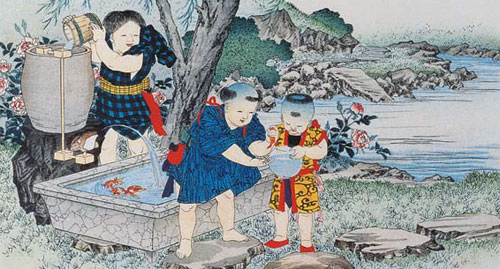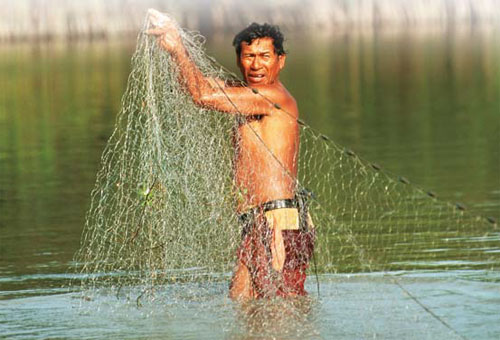Although there is some archaeological evidence of fish-keeping dating back to Babylonian and Egyptian times, it is unclear when people started keeping fish for their aesthetic qualities, rather than as a source of food, but the activity certainly dates back well over a thousand years. It probably began in China with the domestication of goldfish and koi, and has spread worldwide with advances in aquarium technology and transportation.Today’s aquatic industry produces a vast range of products to make fishkeeping more rewarding than ever before.
“Thence home and to see my Lady Pen, where my wife and I were shown a fine rarity: of fishes kept in a glass of water, that will live so for ever; and finely marked they are, being foreign.” This extract from the diary of Samuel Pepys, dated May 28, 1665, shows that ornamental goldfish were known in Restoration London. Even earlier records of fishkeeping in China have been found, and one of the oldest surviving essays on goldfish—The Book of the Vermilion Fish—dates back to 1596.While keeping coldwater fish seems to be an ancient pursuit, tropical fishkeeping is probably a more recent interest, although Siamese Fighting Fish have been bred selectively in Siam (now Thailand) for many centuries. Some of the hardier tropical fish—such as Paradise Fish—were kept successfully in the late 19th century, decorating the Imperial Court of the Russian czar.The earliest tropical aquariums were equipped with slate bases, and heated from beneath using a naked flame, making a perilous life for the fish.

Victorian enthusiasts
Interest in fishkeeping in the West blossomed in Victorian England, where the name “aquarium” was first coined, and keeping fish in the home became immensely fashionable.The first public aquarium opened at London Zoo in 1853, and scientific papers were published setting out the recipe for a “balanced aquarium.” The public flocked to see amazing displays of native marine life, which were especially popular in the coastal resorts of Great Britain, where water could be pumped into the tanks from the sea.
Transportation and technology
By the end of the 19th century, England and Germany dominated the aquarium pastime, exporting fish to the US and farther afield. However, tropical fishkeeping only took off as a hobby in the 20th century, when electricity supplies made lighting and water heating a reality. Commercial breeding of fish to meet growing demand began in Florida in 1926; the climate of the state and its proximity to the rivers of South America, where many popular aquarium fish originate, made it the ideal base for a fast-growing industry. Breeding of highly ornamental varieties in the US and elsewhere attracted more people to the hobby, while the expansion of air travel after WorldWar II disseminated exotic varieties around the world with unprecedented speed. Today, fishkeeping is big business. Constant improvements in aquarium technology and foods have made caring for fish in the home easier than ever. Furthermore, scientific research has confirmed what generations of fishkeepers have recognized: keeping fish brings measurable health benefits—lowering blood pressure and stress levels—and can promote a higher quality of life.
Conservation issues
The vast majority of freshwater fish offered for sale to the aquarist are bred in captivity on a commercial scale. A small proportion of freshwater and many marine species, however, are wild-caught for the trade. While some people argue that the trade of live animals should be banned outright, conservationists increasingly agree that the sustainable harvesting of wild fish for the aquarium may benefit both fish populations and the wider environment. This is because the controlled collection of fish provides lucrative local employment and gives governments real incentives to monitor and safeguard precious habitats, such as tropical reefs and rainforests.



